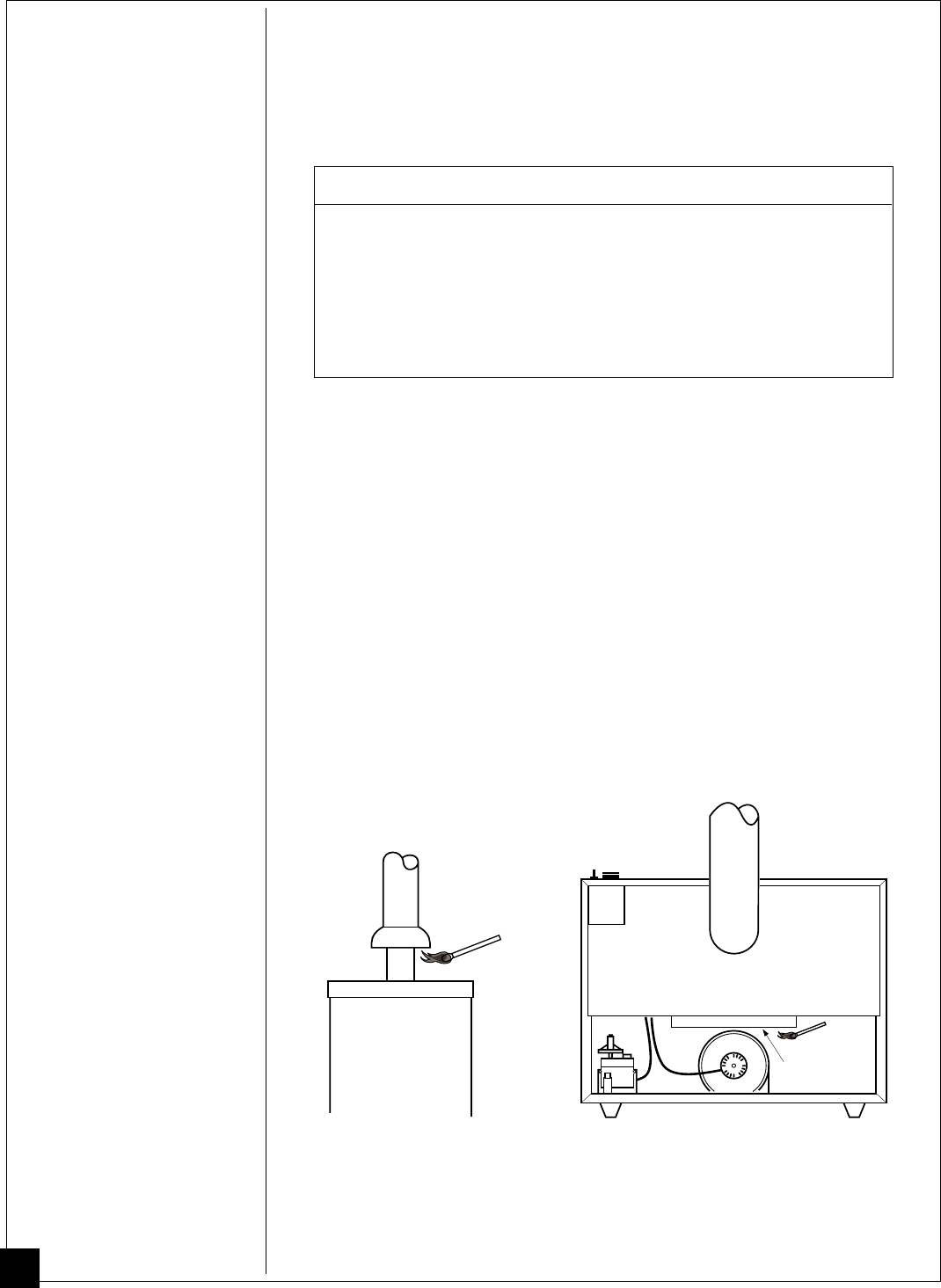OWNER'S OPERATION AND INSTALLATION MANUAL VENTED PROPANE GAS HEATERS GVR65BPA, GVR65PA, GVR50BPA, GVR50PA, GVR35PA

18
100791
AIR FOR
COMBUSTION
AND
VENTILATION
Continued
DETERMINING FRESH-AIR FLOW FOR HEATER LOCATION
Example 1: Locating Heater in Unconfined (Open) Area
NOTICE
An unconfined area has a minimum air volume of 50
cubic feet for each 1000 BTU/Hr input rating of all
appliances in the area (cubic feet equals length x width
x height of area). Include adjoining rooms only if there
are no doors between the rooms or if you add ventila-
tion grills between the rooms (see
Ventilating Confined
Area,
page 20).
In an open area, the air that leaks around doors and windows may provide enough
fresh air for combustion and ventilation.
Draft Hood Spillage Test
Follow the steps below to see if enough fresh air is available.
1. Close all windows and doors.
2. If you have a fireplace, start a fire. Build fire until flames are burning strongly.
3. Turn on all exhaust fans. These include exhaust fans for kitchen, bathroom,
water heaters (gas or electric), etc.
4. Turn on all vented gas appliances. These include any room heaters, water
heaters, clothes dryer, etc.
5. Wait ten minutes for drafts to regulate.
6. Check for draft-hood spillage at each vented gas appliance. Do this by holding
a lit match two inches from the draft opening (see Figure 14). If match flame
pulls toward the draft hood, there is no spillage. If match flame blows away
from the draft hood, there is spillage. This is a hazardous condition. See Draft
Hood Spillage, page 19.
Typical
Water
Heater
Match
Draft Hood
Vent Pipe
Heater
Match
Draft Hood
Opening
Vent Pipe
Figure 14 - Checking for Draft Spillage
No Draft Hood Spillage: This shows there is enough fresh air in area for
appliances. Turn off all exhaust fans and appliances if desired.
In the absence of local codes, use the following excerpts from the National Fuel
Gas Code NFPA 54/ANSI Z223.1, Air for Combustion and Ventilation.










